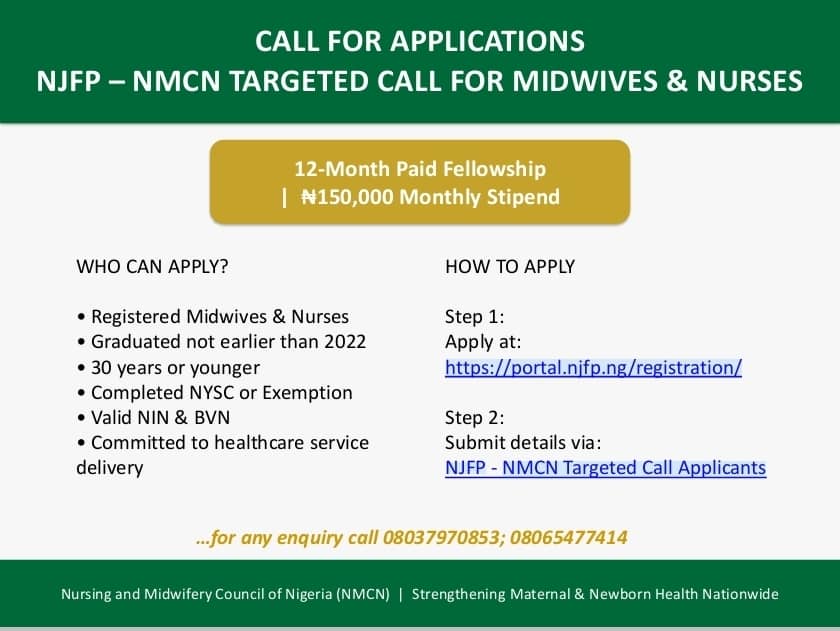World Health Organisation (WHO), yesterday, released an updated health workforce support and safeguards list, identifying 55 countries, including Nigeria, as vulnerable for availability of health workers required to achieve the United Nations (UN) Sustainable Development Goals (SDGs) target for Universal Health Coverage (UHC) by 2030.
It was, probably, reacting to the United States (U.S.) Board suing of 43 Nigerian nurses for certificate falsification.
The Texas Board of Nursing had charged no fewer than 75 nurses to court over issues bordering on falsification of certificates. Forty-three of the nurses are Nigerians.
This was contained in a statement shared on the Board’s website and tagged ‘Operation Nightingale’.
The Board noted that the individuals, who acquired the fraudulent credentials, used them to qualify to sit for the National Nursing Board exam.
It stated that nursing applicants, upon successful completion of the board exam, became eligible for licensure in various states to work as a Registered Nurse (RN) or a Licensed Practical/Vocational Nurse (LPN/VN).
The Board, however, said it had filed “Formal Charges” against the nurses for fraudulently obtaining educational credentials.
However, WHO stated that the impact of COVID-19 and widespread disruptions to health services resulted in a rapid acceleration in the international recruitment of health workers. It said for countries losing health personnel to international migration, this could negatively impact health systems and hinder their progress towards achieving UHC and health security.
Of the 55 countries, 37 are in the WHO African region, eight in the Western Pacific, six in the Eastern Mediterranean, three in the South East Asia and one in the Americas. Eight countries have been newly added to the WHO health workforce support and safeguards list 2023 since its original publication in 2020.
The Guardian had, in August last year, reported that following data from British National Health Service (NHS) Digital, with 4,722 Nigerian-trained nurses and midwives, the country tops the list of United Kingdom’s newly registered medics over the last five years.
According to the data, one in three doctors and nurses, who joined the NHS in England, last year, were recruited from overseas, raising concerns the health service is becoming over-reliant on foreign personnel.
Analysis by the BBC data from NHS Digital shows that the share of healthcare staff recruited from overseas almost doubled between 2014 and 2021.
A breakdown showed that Nigeria was only surpassed by India and the Philippines with 21,357 and 17,825 nurses and midwives, respectively.
WHO Director-General, Dr. Tedros Ghebreyesus, said: “Health workers are the backbone of every health system, and yet 55 countries with some of the world’s most fragile health systems do not have enough and many are losing their health workers to international migration.
“WHO is working with these countries to support them to strengthen their health workforce, and we call on all countries to respect the provisions in the WHO health workforce support and safeguards list.”
It said the list should be used to inform advocacy, policy dialogue at all levels and financing efforts in support of health workforce education and employment in these countries.
The countries included in the WHO health workforce support and safeguards list 2023 have a UHC service coverage index below 55 and health workforce density below the global median: 49 medical doctors, nursing and midwifery personnel per 10,000 people. These countries require priority support for health workforce development and health system strengthening, along with additional safeguards that limit active international recruitment.
According to the statement, the WHO health workforce support and safeguard list 2023 does not prohibit international recruitment, but recommends that government-to-government health worker migration agreements: be informed by health labour market analysis and the adoption of measures to ensure adequate supply of health workers in the source countries; engage Ministries of Health in the negotiation and implementation of agreements; and specify the health system benefits of the arrangement to both source and destination countries.
WHO also recommends that these safeguards be extended to all low- and middle-income countries.
Implementation of the WHO Global code of practice on the international recruitment of health personnel (WHO Global Code) can ensure that international movement of health workers is ethically managed, supports the rights and welfare of migrant health workers and maintains health service delivery objectives.
The 2023 update is informed by the report of the WHO Expert Advisory Group on the Relevance and Effectiveness of the WHO Global Code. WHO said it will update the list every three years, with the next update scheduled for publication in 2026.
It said this issue will be discussed at the upcoming Fifth Global Forum on Human Resources for Health, which will examine the required policy solutions, investments, and multi-sectoral partnerships to address health and care workforce challenges to advance health systems towards the attainment of UHC and health security. The WHO said the outcomes of the Forum would inform the United Nations General Assembly’s High-Level Meeting on UHC in September 2023.
Meanwhile, the Texas Board, in its statement, added: “Please note that Formal Charges are not a final disciplinary action, and a nurse is permitted to work, as a nurse, while Formal Charges are pending.”
The Board further disclosed that the US Department of Health and Human Services Office of Inspector General (HHS-OIG) and law enforcement partners, on January 25, 2023, launched a multi-state coordinated law enforcement action to apprehend individuals engaged in a scheme to sell false and fraudulent nursing degree diplomas and transcripts.
“The alleged scheme involved the selling of fake and fraudulent nursing degree diplomas and transcripts obtained from accredited Florida-based nursing schools to Registered Nurse (RN) and Licensed Practical/Vocational Nurse (LPN/VN) candidates,” it said.
The Board noted that it is working, diligently, with all appropriate nursing regulatory bodies, nursing education program providers, accreditation bodies and authorities to detect, investigate and resolve these matters as quickly as possible, including seeking revocation of any licensure obtained through fraudulent means.
“This list will be updated continuously as the Board receives additional information about the fraudulent diploma/transcript scheme,” it added.




